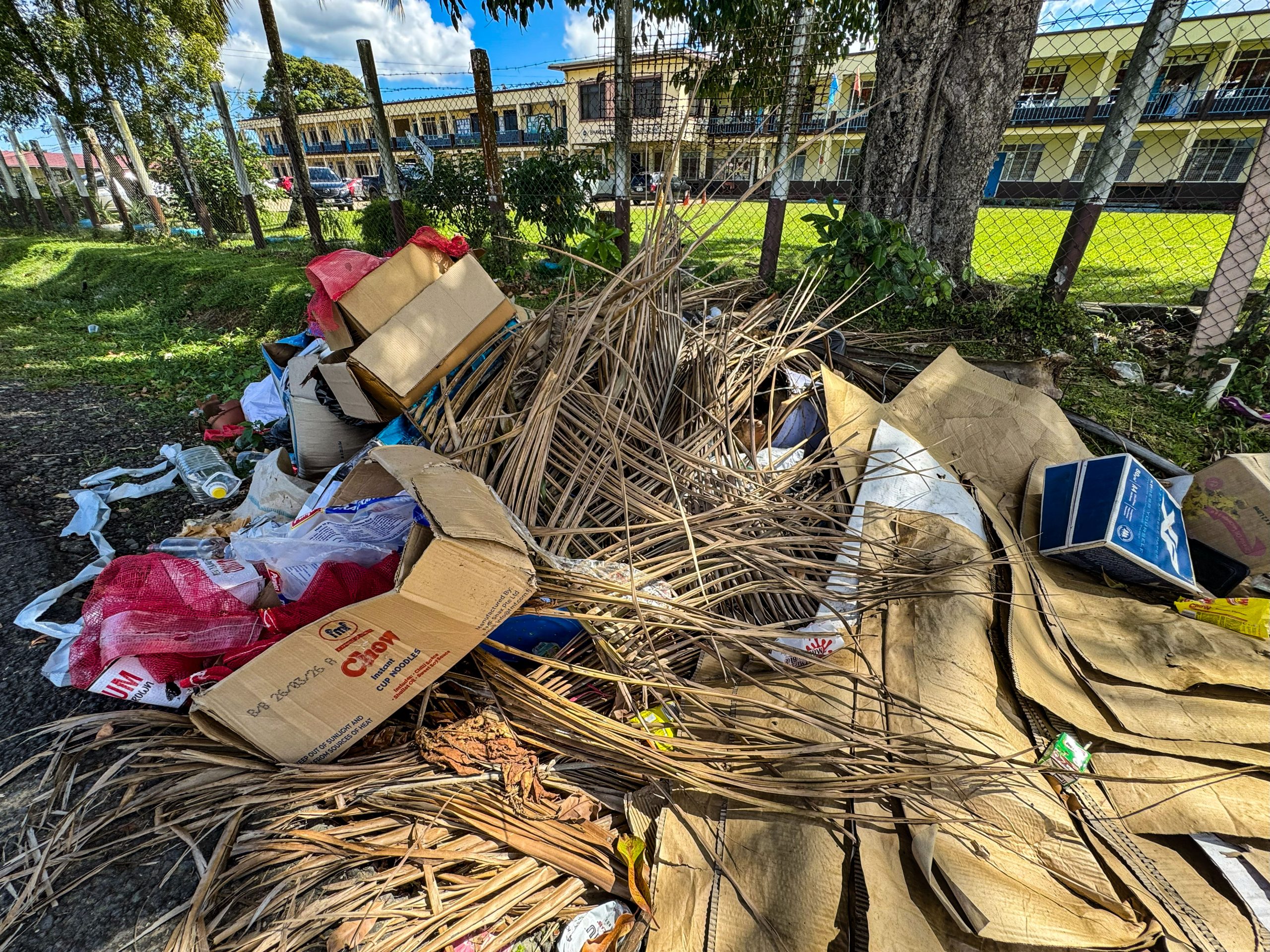It’s good to know that government ministries are joining forces after Prime Minister Sitiveni Rabuka called for a united front in the fight against dengue fever and what he terms our worsening litter problem.
We hear that Minister for Environment and Climate Change Mosese Bulitavu confirmed initial talks with Health Minister Dr Ratu Atonio Lalabalavu, Local Government Minister Maciu Nalumisa and Minister for Information Lynda Tabuya to map out a response.
Mr Rabuka’s call for a united front against the worsening dengue outbreak and the country’s escalating litter crisis could not come at a more critical time. With eight dengue-related deaths already confirmed, the urgency of coordinated national action is clear. This will also be a test of civic responsibility, community spirit, and our collective commitment to keeping our country clean, safe, and liveable. At the heart of the Prime Minister’s message is the fact that these two issues, dengue and litter, are interconnected. One feeds the other. Litter, when left unchecked around homes, villages, and urban compounds, creates breeding grounds for mosquitoes. Poor waste management leads directly to the kinds of environmental conditions where mosquito-borne diseases flourish. So fighting dengue without addressing litter is like trying to empty a sinking boat without plugging the hole.
To that effect, it is encouraging that government ministries are beginning to coordinate their efforts.
This is a positive sign, echoing the PM’s call for a “whole-of-country” approach. The reality though is that this cannot be a government-only initiative.
As Mr Rabuka rightly pointed out, the success of any national campaign depends on community involvement.
He reflected on past national health drives, like those that tackled elephantiasis, as examples of how coordinated, community-driven efforts can produce real results.
It is that spirit of collective responsibility that must now be rekindled.
In the face of that, critics, like Opposition MP Parveen Bala, have voiced concerns that the crisis reflects a system not functioning as it should. He pointed to a disturbing link between poor hygiene, inadequate waste management, and rising dengue deaths, and criticised the government’s lack of urgency and coordination.
While these criticisms may spark debate, they also raise the importance of turning talk into action, swiftly and decisively. So our immediate challenge is twofold. We must control and ultimately eliminate the dengue outbreak. And we must work on instilling long-term habits of cleanliness and environmental responsibility.
Long-term strategies, such as waste-to-energy projects, are important, but they will take time.
We need to get to the grassroots, motivating people to start in their own homes and compounds. This is where real change begins.
We must see the fight against dengue and litter as one unified mission to restore health, dignity, and pride to our surroundings.
Let’s face it, clean compounds are not only healthier but also a sign of respect, for ourselves, for our families, and for our neighbours. When we take ownership of our spaces, we create safer and more liveable communities for everyone. This is a call for us to rise to the challenge. It is about fostering a mind-set of care and responsibility, where keeping our homes and compounds clean is seen as a national duty and a neighbourly courtesy.
In the end, the fight against dengue and litter is not just about stopping disease or cleaning up rubbish. We could look at it as a means to build a stronger, more united Fiji, one compound, one household, one village at a time!

